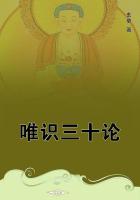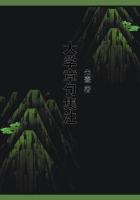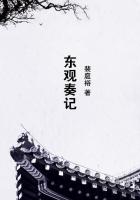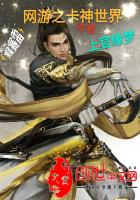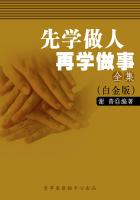i.e. "witless and worthless are synonymous."But (pursues the accuser) by carefully culling the most immoral passages of the famous poets, and using them as evidences, he taught his associates to be evildoers and tyrranical: the line of Hesiod for instance--No work is a disgrace; slackness of work is the disgrace-- "interpreted," says the accuser, "by Socrates as if the poet enjoined usto abstain from no work wicked or ignoble; do everything for the sake of gain." "Works and Days," 309 {'Ergon d' ouden oneidos}. Cf. Plat. "Charm." 163 C.
Now while Socrates would have entirely admitted the propositions that "it is a blessing and a benefit to a man to be a worker," and that "a lazy do- nothing is a pestilent evil," that "work is good and idleness a curse," the question arises, whom did he mean by workers? In his vocabulary only those were good workmen who were engaged on good work; dicersand gamblers and others engaged on any other base and ruinous business he stigmatised as the "idle drones"; and from this point of view the quotation from Hesiod is unimpeachable--No work is a disgrace; only idlesse is disgrace.
But there was a passage from Homer for ever on his lips, as the accuser tells us--the passage which says concerning Odysseus,What prince, or man of name, He found flight-giv'n, he would restrain with words of gentlest blame: "Good sir, it fits you not to fly, or fare as one afraid, You should not only stay yourself, but see the people stayed."Thus he the best sort us'd; the worst, whose spirits brake out in noise, He cudgell'd with his sceptre, chid, and said, "Stay, wretch, be still, And hear thy betters; thou art base, and both in power and skill Poor and unworthy, without name in counsel or in war." We must not all be kings.
See below, III. ix. 9.
"Il." ii. 188 foll., 199 foll. (so Chapman).
Lit. "But whatever man of the people he saw and found him shouting."--W. Leaf.
The accuser informs us that Socrates interpreted these lines as though the poet approved the giving of blows to commoners and poor folk. Now no such remark was ever made by Socrates; which indeed would have been tantamount to maintaining that he ought to be beaten himself. What he did say was, that those who were useful neither in word nor deed, who were incapable of rendering assistance in time of need to the army or the state or the people itself, be they never so wealthy, ought to be restrained, and especially if to incapacity they added effrontery.
As to Socrates, he was the very opposite of all this--he was plainly a lover of the people, and indeed of all mankind. Though he had many ardent admirers among citizens and strangers alike, he never demanded any fee for his society from any one, but bestowed abundantly upon all alike of the riches of his sould--good things, indeed, of which fragments accepted gratis at his hands were taken and sold at high prices to the rest of the community by some, who were not, as he was, loversof the people, since with those who had not money to give in return they refused to discourse. But of Socrates be it said that in the eyes of the whole world he reflected more honour on the state and a richer lustre than ever Lichas, whose fame is proverbial, shed on Lacedaemon. Lichas feasted and entertained the foreign residents in Lacedaemon at the Gymnopaediae most handsomely. Socrates gave a lifetime to the outpouring of his substance in the shape of the greatest benefits bestowed on all who cared to receive them. In other words, he made those who lived in his society better men, and sent them on their way rejoicing.
See "Symp." iv. 43; Plat. "Hipp. maj." 300 D; "Apol." 19 E. See Diog. Laert. II. viii. 1.
See "Hell." III. ii. 21; Thuc. v. 50; Plut. "Cim." 284 C. For the Gymnopaediae, see Paus. III. xi. 9; Athen. xiv. p. 631.
To no other conclusion, therefore, can I come but that, being so good a man, Socrates was worthier to have received honour from the state than death. And this I take to be the strictly legal view of the case, for what does the law require? "If a man be proved to be a thief, a filcher of clothes, a cut-purse, a housebreaker, a man-stealer, a robber of temples, the penalty is death." Even so; and of all men Socrates stood most aloof from such crimes.
See "Symp." iv. 36; Plat. "Rep." 575 B; "Gorg." 508 E.
To the state he was never the cause of any evil--neither disaster in war, nor faction, nor treason, nor any other mischief whatsoever. And if his public life was free from all offence, so was his private. He never hurt a single soul either by deprivation of good or infliction of evil, nor did he ever lie under the imputation of any of those misdoings. WHere then is his liability to the indictment to be found? Who, so far from disbelieving in the gods, as set forth in the indictment, was conspicuous beyond all men for service to heaven; so far from corrupting the young--a charge alleged with insistence by the prosecutor--was notorious for the zeal with which he strove not only to stay his associates from evil desires, but to foster in them a passionate desire for that loveliest and queenliest of virtues without which states and families crumble to decay. Such being his conduct,was he not worthy of high honour from the state of Athens?
Or, "the noblest and proudest virtue by means of which states and families are prosperously directed."

